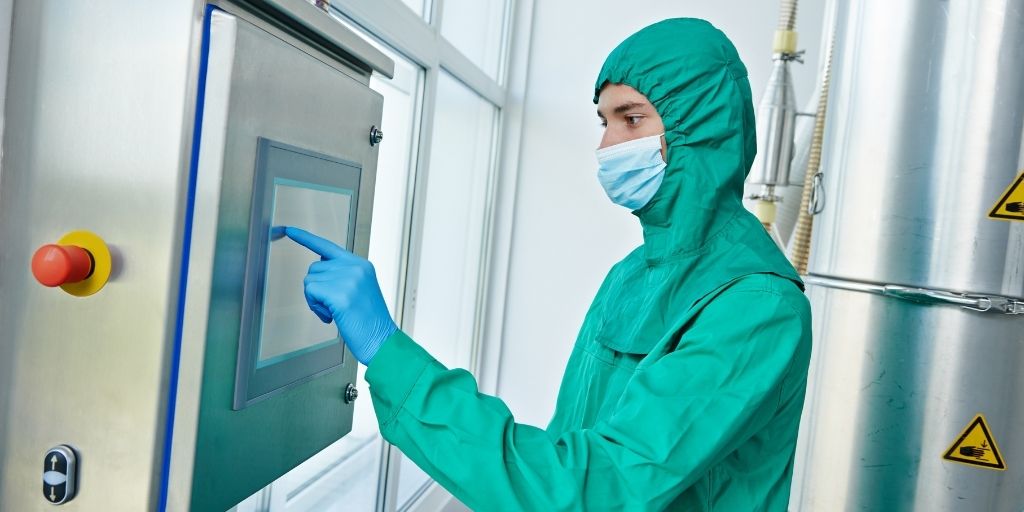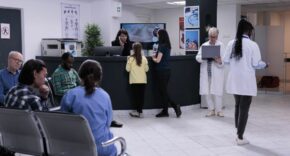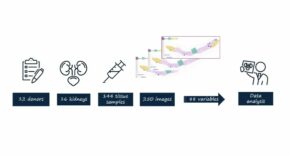 .
.
Dassault Systèmes (Euronext Paris: #13065, DSY.PA) today reveals the findings of ‘A sustainable future for business post-COVID’, a new survey into the sustainability of the life sciences industry, which found that the COVID pandemic has acted as a springboard to reassess how the sector operates and helped make leaps towards mass digital transformation. As the industry prepares for a post-COVID world, the tools and skills adopted during the pandemic can act as a blueprint for a more digitally-savvy and sustainable sector.
Lessons from the pandemic
The COVID pandemic has shed light on many inefficiencies in the life sciences sector, according to the survey: 70% of companies admitted to relying on outdated processes, which prevented them from collaborating remotely during the pandemic. Worse still, 62% even struggled to access COVID-19 research due to these outdated processes. This revelation had a stark impact on the future of the sector amid a global crisis, with almost three in four (73%) companies admitting they struggled to innovate due to the pandemic. A similar proportion (70%) struggled to upskill its workforce, creating additional pressure on an industry that needed to operate faster and more seamlessly than ever before.
While the industry took drastic steps to better address the COVID-19 crisis, these outdated processes have also impacted the industry’s ability to improve patient outcomes outside of the pandemic. Most respondents had to postpone R&D efforts into other treatments to focus on COVID-19 (74%), the launch of new treatments and products (69%), or research into sustainable materials (70%). To better manage its new mandate to deliver better patient care at a faster pace than ever before, and across a wider range of disciplines than previously, the industry needs to address three fundamental challenges: business and operating models, product innovation, and upskilling people.
The role of data in supporting the industry’s move to a sustainable future
As a result of these outdated processes, the majority of respondents have had to postpone implementing their sustainability goals (70%); by contrast, the pandemic has increased the amount of waste their organisation produces (70%)
Despite this, becoming net zero remains a strategic priority for most organisations (69%), following increased pressure to improve the industry’s sustainability credentials and ambitious government goals to drastically reduce the country’s emissions by 2050
To address this, the industry needs access to data to better assess its current practices and devise strategies to become more sustainable. Yet, three in four (77%) companies surveyed admit they lack data to evaluate their carbon footprint accurately. A similar proportion (77%) recognises it needs a centralised data management solution across its entire supply chain to get a holistic picture of the emissions its operations create, including scope 3 emissions happening outside of the company’s premises.
The case for virtual twin
In light of the pandemic, a majority of the industry has quickly adopted solutions to improve digital collaboration, such as virtual twins (71%). Virtual twins are a set of digital tools enabling users to collaborate, access swathes of data and create virtual models and simulations of products to test out hypotheses – from testing out a treatment on a virtual model of an organ such as a heart, to running entire clinical trials without the need for placebos – and simplify information sharing among departments and third parties, including regulatory offices and government bodies to speed up time to market for new treatments. These solutions are already playing an integral part in the clinical trials for COVID-19, and are increasingly being used to provide R&D teams with data to support future research.
Looking to the world post-pandemic, virtual twins will not only play a part in improving collaboration, but also underpin the industry’s effort to become more sustainable. Respondents to the survey consider that they are a critical technology required to achieve their business’ net zero carbon goals, alongside augmented and virtual reality (51%), automation (44%), the Internet of Things (39%) and Cloud Computing (35%).
By removing the need for physical prototypes, virtual twins enable companies to reduce their waste and carbon emissions. This provides companies with more effective methods to improve the lifecycle of their products and provides an advantage to avoid losing customers to more environmentally-savvy competitors. As a result of this unique approach to innovation and operating models, 70% of respondents see virtual twins as integral to achieving a carbon neutral world by 2050.
Richard Coxon, Director, Life Sciences at Dassault Systèmes, said: “The pandemic was a wakeup call for the life sciences industry: while it had been progressively moving to digital ways of working, most operations were still done in person in a physical lab until governments enforced lockdowns. Overnight, entire companies had to learn to work remotely, while delivering critical support to patients and dealing with the biggest pandemic since the Spanish flu at the start of the 20th century. This shift to a completely digital way of working was unprecedented and the industry had to choose its battles. Unfortunately, this meant that many sustainable initiatives had to be put on hold to provide critical support to patients – and do it fast.”
He continued: “We now have vaccines being rolled out all over the world, which means that the industry can start tackling the remainder of its challenges – starting with ensuring it creates a sustainable environment that supports innovation, enabling workers to develop new skills while reducing the sector’s impact on the planet. The need for better digital solutions during the pandemic has fast tracked the adoption of virtual twins and shown life sciences professionals all over the world how they could innovate, support patients and each other faster and in a more environmentally-conscious way. As we look to a world post-COVID, it’s clear that the industry has turned to a new chapter – one where products, people and the planet are in symbiosis, underpinned by digital tools and strategies, including virtual twins.”













